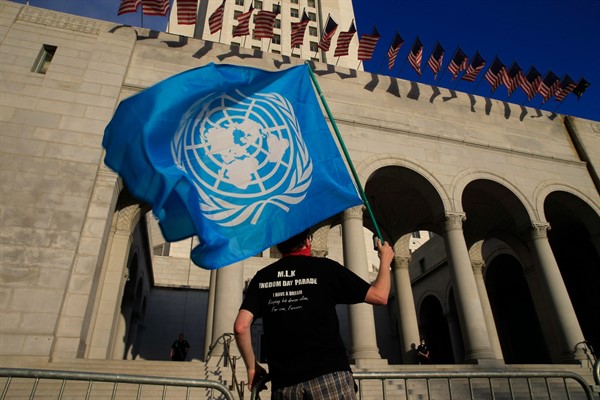“The Future We Want, the UN We Need.” That’s the theme Secretary-General Antonio Guterres chose for the 75th U.N. General Assembly, which opened virtually earlier this month because of the coronavirus pandemic. By using the word “we,” Guterres had in mind not just the governments of the U.N.’s 193 member states, but the aspirations of everyday citizens, consistent with the spirit of the U.N. Charter, whose preamble begins, “We the Peoples of the United Nations….”
But how do you measure the attitudes and preferences of 7.8 billion people, especially in the midst of a pandemic? In the run-up to this year’s General Assembly, the U.N. Secretariat held an array of national and regional consultations, many facilitated by local chapters of the United Nations Association. The Secretariat also designed an online “one-minute survey,” asking people what they thought about multilateralism and what issues the U.N. should focus on over its next 75 years. What was still missing, until now, was any hard data about just how multilaterally inclined publics around the world really are. That includes in the United States, where the Trump administration has repudiated many of the principles of international cooperation on which the U.N. was founded.
Fortunately, we now have better insight into public attitudes, thanks to three surveys recently released by the Pew Research Center, the Chicago Council on Global Affairs, and the Better World Campaign, an advocacy arm of the U.N. Foundation. They show robust global and U.S. support for international cooperation and the United Nations. At the same time, they reveal stark partisan differences in public attitudes in the U.S, where Democrats and Republicans seem to be living on different planets.

